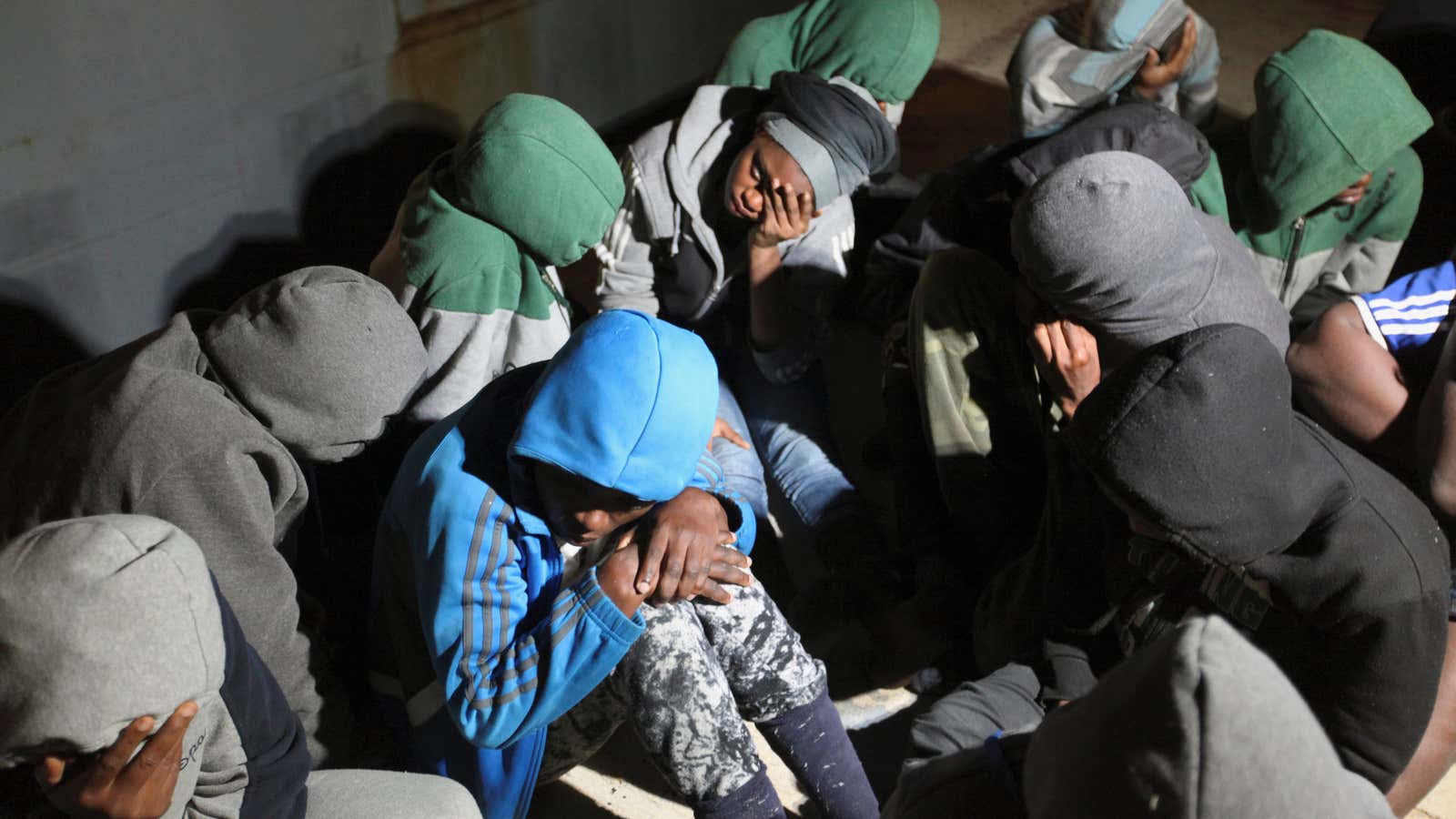On Nov. 17, CNN broadcast a video showing traders buying and selling migrants from West Africa for a few hundred dollars in a Libyan marketplace. The outcry was swift and global: Thousands of protesters marched against modern day slavery in Paris and Bamako, Mali, while the UN secretary-general said he was “horrified” and “abhor(s) these appalling acts.”
The presidents of Mali, Burkina Faso, and Niger all summoned the Libyan ambassadors resident in their countries, while French president Emmanuel Macron called for an emergency security council meeting, saying the slave trade in Libya was a “crime against humanity” and that “I hope we can go much further in the fight against traffickers who commit such crimes. EU high representative for foreign affairs Federica Mogherini remarked “the revelations of slavery and human trafficking are unbearable for us on both sides—European and African,” while African Union chair and Guinea president Alpha Condé demanded an end to the practice.
But the revelations that Libyan militias and government authorities are enslaving and abusing migrants are not new. As Mogherini said in a speech to the European Parliament on Nov. 22, “It has been years that we have said as Europeans […] we have to face the dramatic situation of our African brothers and sisters that are in slavery in those centers.”
The public outcries of indignation seem to avoid the elephant in the room: the European Union trains and abets the same authorities accused of enslaving the migrants in order to stop them from coming to Europe.
A UN report from June noted the Libyan Coast Guard and the Department to Counter Illegal Migration are “directly involved” in enslaving migrants that they detain. The EU and NATO train and work with Libyan Coast Guard through the European military mission aimed at stopping smugglers in the Mediterranean, EUNAVFOR-Operation Sophia. They have continued their support, even after the UN’s slavery claim and after human rights organization leveled multiple reports of extreme abuse against migrants by the Coast Guard, which is an arm of the UN-recognized government in Tripoli.
EU and Italy have been financing “operational centers” for the Libyan Coast Guard to help search and rescue according to Mario Morcone, the interior ministry official in charge of Italy’s immigration system. He was speaking at the LIBE committee hearing at the EU parliament on Nov. 28.. “The project is going to cost €285 million, the whole thing.”
A leaked internal EU report from January also noted Libya’s Department to Counter Illegal Migration “main activity consists of the detention of illegal migrants,” and that reports of their detention centers “describe gross human rights violations and extreme abuse and mishandling of detainees, including sexual abuse, slavery, forced prostitution, torture and maltreatment.” The report noted that the International Organization for Migration (IOM) supported the Department to Counter Illegal Migration at the time of the report (the IOM receives a large portion of its funding from the EU). The IOM had reported the existence of slave markets in April.
A press officer for the European Commission declined to comment on the leaked documents.
So while European leaders cry shame and outrage over the CNN video showing enslaved migrants, and president Macron can say in a speech to Burkinabe university students that it is not Europe’s fault because “Africans are enslaving Africans,” it would seem from its actions that Europe’s leaders would prefer to see the migrants enslaved in Libya than free in Europe.
Overall, the EU has a five-year program to make 8 billion euros ($9.5 billion) available to improve migration control from the Middle East and Africa. The program would make it easier to send illegal migrants back home through country partnerships. It also includes a focus on job creation and vocation training.
